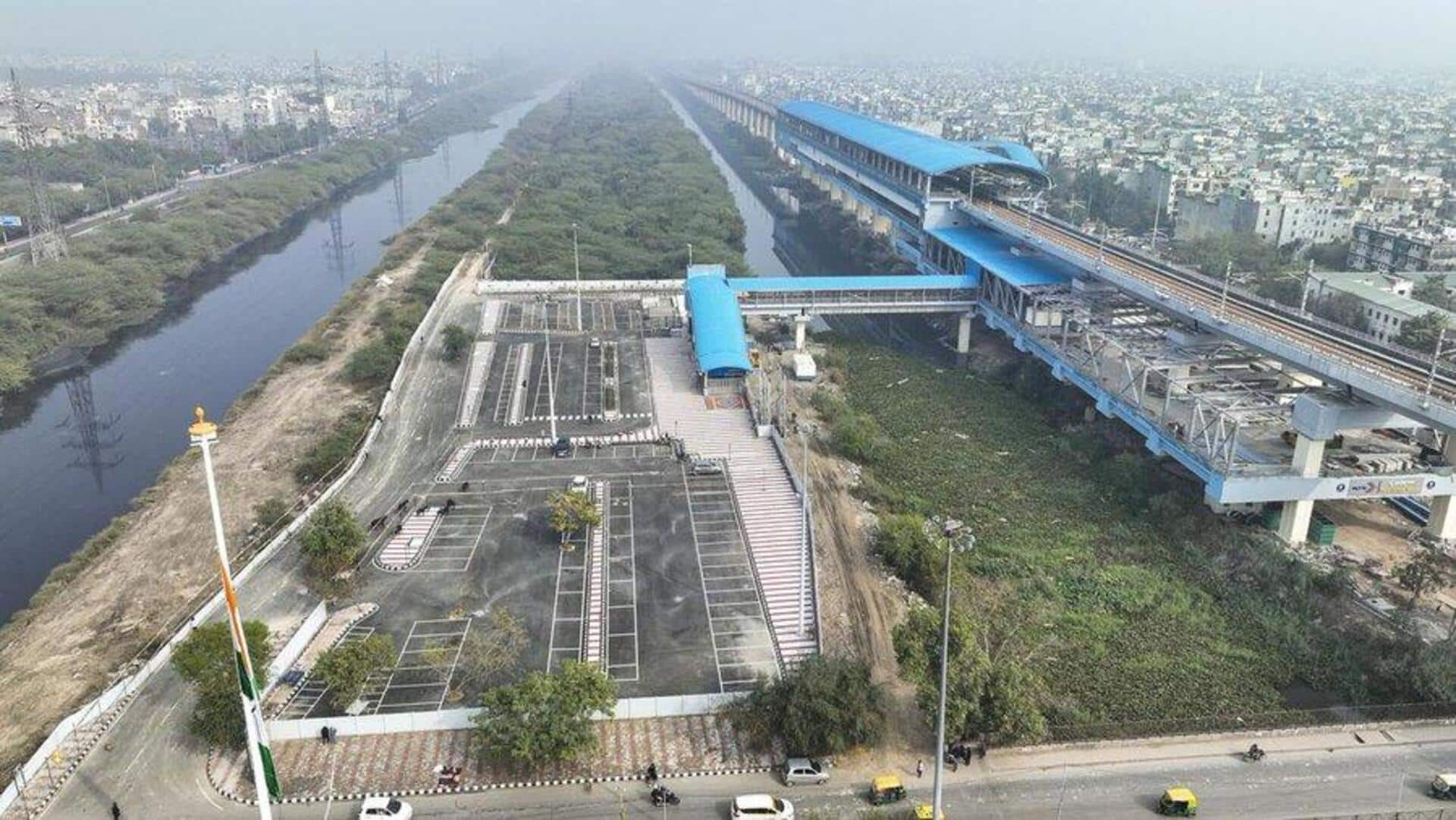
Delhi to Meerut in 40 minutes: all about RRTS corridor
What's the story
Prime Minister Narendra Modi on Sunday inaugurated a 13-kilometer stretch of the Delhi-Meerut Regional Rapid Transit System (RRTS) corridor.
The newly operational stretch connects Uttar Pradesh's Sahibabad to Delhi's New Ashok Nagar and has a six-kilometer underground stretch with the Anand Vihar station.
At the inauguration, PM Modi rode a Namo Bharat train from Sahibabad to New Ashok Nagar, greeting passengers and school kids.
Travel efficiency
RRTS corridor reduces travel time, boosts connectivity
The 55-kilometer RRTS corridor between New Ashok Nagar and Meerut South is now functional with 11 stations. This comes after a 17-kilometer priority section between Sahibabad and Duhai Depot was opened last October.
With the new section, the travel time between New Ashok Nagar and Meerut South has been cut down to under 40 minutes.
The entire Namo Bharat corridor covers 82km from New Delhi's Sarai Kale Khan to Meerut's Modipuram.
Eco-friendly transit
Namo Bharat corridor aims to reduce carbon emissions
The Namo Bharat corridor has 16 stations and nine Meerut Metro stations. Once operational, it will take over one lakh private vehicles off roads and cut carbon emissions by 2.5 lakh tons per year.
New Ashok Nagar station is the first elevated Namo Bharat station on the Delhi section, linked to the Blue Line of the Delhi Metro through a foot overbridge.
A commercial center is also planned at this station for commuter convenience.
Transit development
Ongoing construction and commuter impact of Namo Bharat trains
Meanwhile, construction is underway on stretches between New Ashok Nagar-Sarai Kale Khan and Meerut South-Modipuram.
So far, Namo Bharat trains have catered to over 50 lakh commuters, indicating that regional transit development has come a long way.
The fare for a trip from New Ashok Nagar to Meerut South is ₹150 for a standard coach and ₹225 for a premium coach.
Passenger services will start at 5:00pm on Sunday with trains running every 15 minutes.